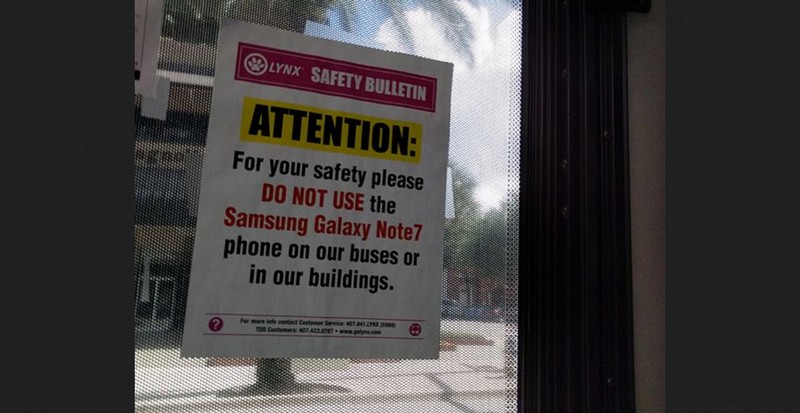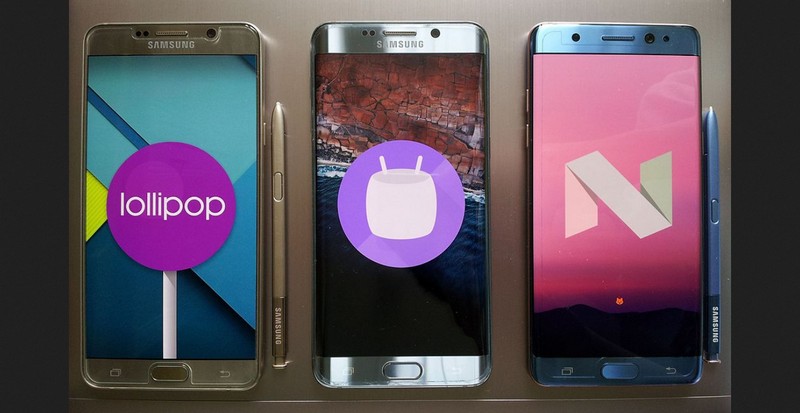Apparently Samsung Still Can’t Pinpoint the Cause of Note 7 Problem

Image credit: Samsung via Wikimedia Commons
The latest iteration of Samsung’s popular Note series, as almost everyone already knows, has become a major problem for the Korean tech giant. Instead of providing an advantage for Samsung in its competition with Apple’s iPhones, it has brought the company to the possibility of incurring losses while losing market share and continuing to suffer decreasing smartphone sales growth.
Promising Device that Quickly Became a Burden
The Samsung Galaxy Note 7 is the 2016 iteration of the popular Android phablet from the maker of the iPhone-rivaling Galaxy S series announced on the first week of August and officially released by the third week. It is supposedly the 6th Note device but Samsung decided to skip the number 6 and called it 7.
Nobody expected it to aggravate Samsung’s financial woes because it is supposed to be a hero device. It was well received by a number of tech sites, having been commended for its design refresh, camera, water-resistance, and performance. In South Korea, more than 200,000 Note 7s were sold in just 2 days while sales in Canada, Malaysia, Russia, Ukraine, and the Netherlands were reportedly outstanding. However, things started going south when reports of exploding or burning Note 7’s came one after the other. That’s when authorities responded accordingly.
On September 8, 2016, The US Federal Aviation Administration officially issued an advisory for passengers who own Note 7s to turn off and not charge their devices while on board. A day after, the European Aviation Safety Agency followed suit and issued a similar statement without necessarily singling out the Note 7. More than a month later, the Note 7 problem remained unaddressed. In fact, one Galaxy Note 7 alarmed passengers and authorities as it emitted smoke at Kansai International Airport.
The Note 7 was logically recalled by Samsung in response to the multitude of complaints, reports of defects, and unflattering advisories/reminders/warnings at airports, airlines, and other transportation facilities. The device had even been banned on Lynx buses and buildings in Florida.

Image credit: elisfkc via Wikimedia Commons
Still Unsure of the Cause
Unfortunately, after several weeks, Samsung appears to be still uncertain about the cause of the Note 7 combustion and explosions. The speculation was that there could be problems in the SDI-made batteries on the devices. The reports that followed, however, showed that even those units offered as replacements still had similar problems. An October 11 report by the New York Times revealed that Samsung still couldn’t pinpoint the problem. According to sources, Samsung’s testing team still couldn’t replicate the explosions and burning of the Note 7s. As such, they couldn’t be sure of the problem and don’t have an idea of what solution to introduce to fix the problem.
Observers reckon that the batteries may not have been the problem in the first place. In an Ubergizmo interview, Park Chul-Wan, ex-director Center for Advanced Batteries at the Korea Electronics Technology Institute, opined that it as too hasty to blame the problem on the batteries. The batteries may have not been the problem or they may not be the main cause of the damagingly reported cases of explosions and burning.
Because of the Note 7’s richer set of features, it is expectedly more complex than the other devices Samsung has produced. Samsung may have reduced the time for conducting thorough tests. Park Chul-Wan thinks that the design of the Note 7 could be a major cause of the problem. There are speculations that the “symmetrical” design of the Note 7 is to blame, since it is the only Note device to sport a balanced front back widths.
Discontinued
Samsung already decided to discontinue the entire Note 7 series. However, company continues to refuse giving a clear answer as to what the real cause of the problem is. Even more intriguing, the company’s representatives refuse to comment when asked if they already know what the problem is. They likely still don’t have any idea what’s really behind the Note 7’s defects, and this does not bode well for company that sells millions of devices worldwide.

Image credit: Pang Kakit via Wikimedia Commons
Lesson Learned
There are speculations that the Note 7 debacle could be partly caused by Samsung’s decision to rush the release of the Note 7, in an effort to upend the newest iPhone for 2016. There was a report by Bloomberg claiming that Samsung learned about the specs of the iPhone 7 (that it would not be that different from the iPhone 6s), so Samsung wanted to take the opportunity to appear way more superior. Samsung reportedly rushed engineers and suppliers to have an earlier release date. Unfortunately, all of these efforts appear to have backfired.
Moral of the story: no company should ditch proven systems, methods, and processes just to get ahead of the competition. Samsung is known for quality devices. Its smartphones rank well in customer satisfaction surveys but it took just one defective device line to bring the tech behemoth down financially and reputation-wise.